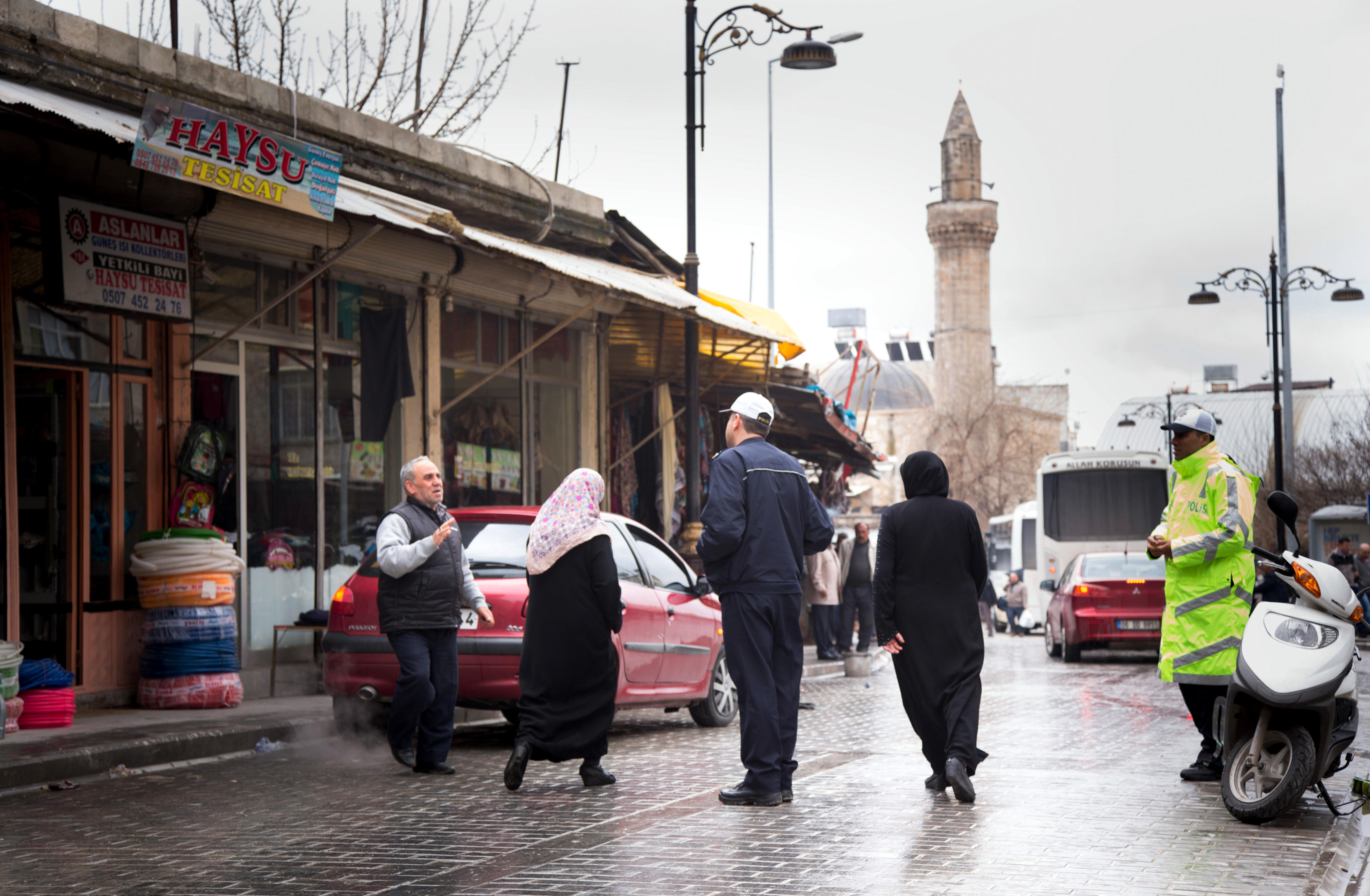Cooperation in action Community centres to improve social cohesion
Street scene in Öncüpinar at the Turkish-Syrian border
The Deutsche Gesellschaft für Internationale Zusammenarbeit (GIZ) has been commissioned by the BMZ and is currently working with the German NGO Welthungerhilfe to support the services of nine community centres in eight Turkish provinces. First, the two organisations are seeking to establish which services the refugees need most urgently. Then they will widen the range of services on offer, and develop new courses, in accordance with their findings. Particularly important will be courses offering Turkish language lessons, but there will also be courses offering training in crafts and trades.
Moreover, the programme is also designed to strengthen peace-building activities and intercultural relations in order to prevent conflicts between refugees and local population. Consequently, the programme offers activities in sports, the arts, theatre and dance, as well as discussion rounds.
In an effort also to reach particularly vulnerable groups, such as women, severely traumatised people or people with disabilities, the community centres will carry out information campaigns and home visits designed to educate these groups about their rights and the opportunities available to them.
The people implementing the programme work closely with the Turkish authorities and support partnerships between the community centres and local service providers. Although many of the people using the centres come from Syria, the programme is also open to refugees from other countries, such as Iraq or Afghanistan, and to the local Turkish population.
